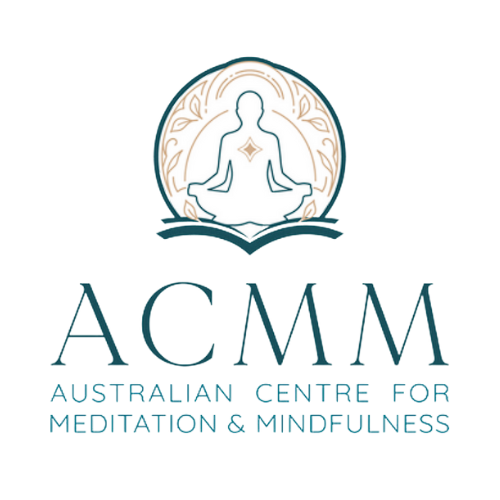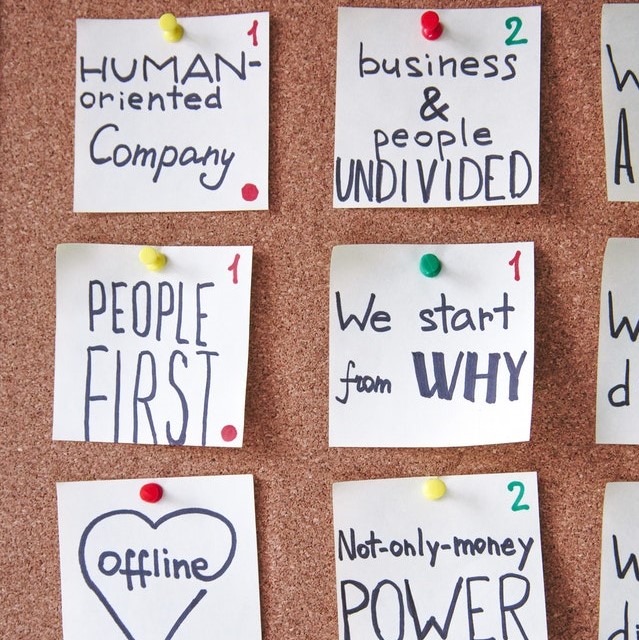After 2.5 min read. Last week we took a look at the increasing need for corporate meditation and mindfulness teachers, as the business world grapples with the sudden shift to a fragmented workforce. We also introduced our new elective, Corporate Meditation and Mindfulness. This weeks’ article outlines how to create a successful program for those looking to teach meditation and mindfulness within the corporate sector.
There is a distinct difference to teaching meditation & mindfulness in the corporate sector, compared to the studio setting. Your services are usually employed by a company that wants to achieve a certain outcome for not only multiple people, but for the overall workplace culture. They may have a wide range of goals in place such as decreasing workplace stress, increasing overall happiness and improving workplace relationships. This means a specific approach must be taken when it comes to teaching meditation and mindfulness within a workplace.
We break this down into to 3 main segments
- Finding your unique voice
- Defining your workplace audience and their needs
- Delivering a tailored solution
#1 Finding your unique voice within corporate meditation and mindfulness
You may have had (or still do!) a career in the corporate sector which might be sparking your interest in taking your teaching skills into this arena. Perhaps you don’t have any experience in the corporate world, or you’re not sure how to develop your network, or where to start. The good news is, that is completely OK! Instead of these being roadblocks, they can be great opportunities to launch your corporate meditation and mindfulness career from. Let us explain how.
Understand the value you bring
Do you have a passion for supporting people through meditation and mindfulness? Do you have the appropriate training to guide and teach others? Would you say you have life experience? It’s all very relevant and allows you to explore the area with an open mind and fresh eyes, even if you have no previous experience in this particular sector.
To deepen your understanding of your life experience and training you might like to take some time to write down the following:
- Your relevant skills and experience. This could be in the workplace in general. Perhaps you worked as a nurse and have experience with scheduling, personal care and attention to detail. Maybe you have worked in hospitality and have experience with customer service, and teamwork. Perhaps you have raised a family, the most underrated experience of them all! Yet, some of the richest and most robust including organising skills, conflict resolution, relationship development, how to listen. All of these experiences contain valuable skills to work in the corporate sector. Write up these strengths, as they become your sales pitch. Look for and leverage any alignments with the corporate sector you are targeting. Whether it be a similar sector or a completely different one from your working/life background. At the very least you will understand the challenges faced by people in the same or similar industries.
- Write up your qualifications and the skills you have gained and be prepared to promote yourself. Your skills as a meditation/mindfulness teacher mean you are prepared and well placed to support the mental health and wellbeing of other humans.
- Acknowledge the value of meditation and mindfulness. You’re bringing an opportunity for deeper self-awareness, for people to get to know themselves and who they truly are, to be present to daily life, with their loved ones, with their work colleagues, to sleep better, to reduce stress, enhance relationships, build resilience and gratitude. Truly AMAZING benefits for the workplace and life generally.
#2 Defining your workplace needs
It’s important to understand the needs of your potential clients. There are a few levels of understanding client needs ( the research stage, initial client discussions, and early stage of delivery).
Research Stage
You can do some research on the internet for articles related to mental health in workplace, workplace well-being, meditation and mindfulness for the workplace generally and also your target sector. Make sure you only cite articles from reputable sources. Look at credible research from well-known sources such as The Australian Bureau of Statistics, The CSIRO, Roy Morgan, universities, and at times peer research.
Developing a one-page document on the best research facts and statistics about the benefits of meditation and mindfulness can be used in numerous ways – from your website copy, through to the proposals you deliver in the market.
Initial Client Discussion – Receiving the Brief
Once you get your foot in the door with a client it’s imperative that you ask them about their specific needs and be prepared to listen. You may want to develop a formal brief template, where you ask open-ended and clarifying questions such as:
- What are the challenges you are wanting to support through meditation/mindfulness?
- How do you see meditation/mindfulness assisting?
- What outcomes are you looking for?
- Will this program be part of a larger holistic approach, or stand-alone?
- When are you/your staff available?
- How many people will the program be offered to? In total/at a time?
- Have you tried to implement meditation/mindfulness training in the past?
- If so, were there any learnings?
Early Stages of Delivery
You might have a pre-training survey, or conduct a survey in the initial session to further clarify individual attendee needs. The survey may be written or verbal if conducted at the first session.
This will help you to better tailor your offering to meet the client’s and individuals’ needs.
#3 Delivering a tailored solution
Now that you have understood the needs of your client, and potentially the needs on an individual basis, you need to clarify the kind of program you plan to deliver.
This can be a sticking point for many service providers. It is in carefully crafting a tailored offering that gives you a unique voice.
With that in mind, how do go about packaging your offerings? To support you with this you might like to answer the following questions and use the responses to help guide your planning.
- Generally, what are the needs of the corporate sector you are targeting? Revisit the discussions you had with your client.
- What type of program could best meet those needs? Couple this with what you, as a teacher, enjoy delivering.
- What are others offering in this space?
- What are others in the market doing well? Is there anything they are overlooking?
- If the clients has had past corporate meditation experience, what types of programs have worked? Were their needs met?
- What does your research tell you are the types of programs that support specific workplace needs?
- Deliver a solution that is in budget, and accounts for staffing availabilities.
- Is there potential for a follow-up service? Perhaps this might be in the form of providing participants with further reading, one on one meditation support, or recordings tailored to the company.
How can I learn more about Corporate Meditation and Mindfulness?
ACMM offer an elective Corporate Meditation and Mindfulness that prepares you to deliver meditation and mindfulness programs in the workplace with:
- Detailed ideas for various delivery formats
- How to foster connections and communicate effectively
- Defining your brand strategy and target audience
- Marketing yourself
- How to win work, creating proposals, pricing and structure
- Measuring outcomes and client reporting
- Delivery methods and practical hints for teaching in this sector
- Customizing the practices to your audience
This information is designed to inspire, stimulate ideas, thoughts and possibilities. It serves to guide discovery as you ponder your own unique path.
This new elective can be studied through the Certificate/Advanced Certificate in Guiding and Teaching Meditation. There is a pre-requisite to complete up to Session 5 of the core subjects.
ACMM also offer a Specialist Stream within the Advanced Certificate that allows you to specialize in Workplace Meditation in your studies. The specialist streams mean that all of your electives complement a particular area of study.
We hope you have found this information useful. Please leave any comments or any questions you might have about this amazing new elective, and we’ll be sure to answer them!
The ACMM Team
We provide a range of post graduate training options and support. Certificate, Diploma and Masters courses in Meditation and Mindfulness Teaching. An optional addition to any course is our Community Work Placement Program. It supports new meditation teachers to begin or expand their teaching practice. Download a prospectus for all the details or book a discovery call with us here to find out more!






